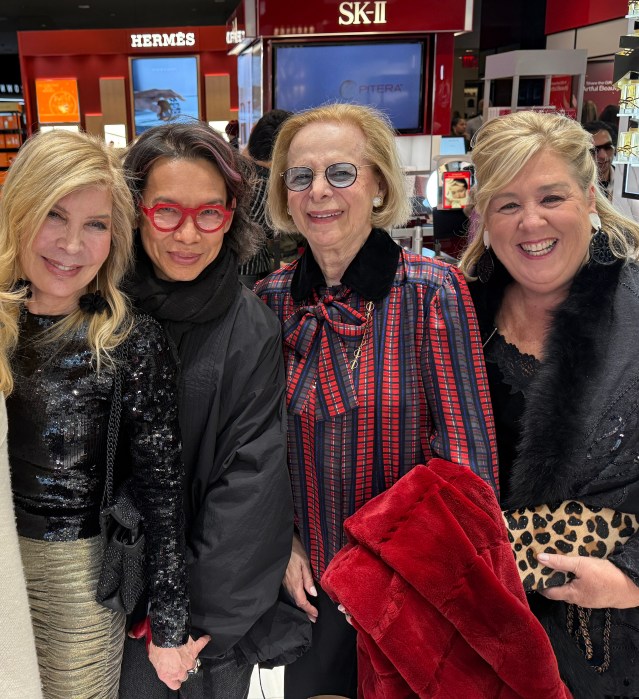By John Bayles
Times have changed for the Unbearables, a loose group of writers, poets and artists that have been a fixture in the underground New York City literary scene since the mid-1980’s. Back then they would gather in bars for “collating” parties, where each person would bring 100 or so Xerox copies of a single work and they would spend the night binding them all into a magazine called “The Unbearables Assembly Magazine.”
Today they exchange discs, or simply e-mail each other, and while much is different, much has also stayed the same for the self-proclaimed “beer mystics” of the Lower East Side. They have managed to hold on to their ideals, one of which is that writers should not be worshipped, and to their purpose: to drink heavily and to discuss their love, or as it were, their hatred for contemporary literature.
Most recently the group published the anthology “The Worst Book I Ever Read,” and have been doing readings around the city to promote it. It’s a collection of no-holds-barred thrashings of classics like Joyce’s “Ulysses,” hot-shot contemporary writers like David Sedaris and even the Bible. It is by far and away the most successful of the Unbearables’ books, and can be found in bookstores, sharing shelf space with the very authors they bash or claim to disdain.
It’s not the first time the Unbearables have launched an attack like this. They’ve published previous anthologies, like “Crimes of the Beats,” which calls out the entire gang and busts many of the myths that define the Beat movement, and they slaughtered the entire genre of self-help books in “Help Yourself!”
On a recent Sunday afternoon in a bar in the East Village, two Unbearables, Ron Kolm and Susan Scutti, discussed the origins of the group.
“There’s only a core of three people,” said Scutti, who made her name as part of another group of poets and writers, the Nuyoricans. “And I’m not one of them.”
“No, I’d define you as being in the core,” said Kolm, who noted that today all one has to do to be an Unbearable is hang out with them.
It all started at a now-defunct bar on the Lower East Side called Tin Pan Alley.
“It was a pimp’s bar,” said Kolm. “They had the front and we had the back. There were blood stains on the pool table.”
Kolm and others gathered to throw a few back, talk about literature and generally groan over how devoid their country was of culture. From there, they managed to cull together a few readings under the moniker “The Unbearable Beatniks of Light,” and the collective was born.
They would continue to make bars their preferred venue for discussion and literary antics. Another was Rudy’s on Ninth Ave., in Hell’s Kitchen.
“Rudy’s was a total Unbearable bar,” said Scutti. “We would meet at this place and just hang out and talk. Then someone would say, ‘Can you read our manuscript?’ and there would be a formal exchange.”
“I think it’s a Wendy’s now,” lamented Kolm. “Or maybe that’s Shandon’s Star I’m thinking about.”
Kolm is without a doubt the heartbeat that is keeping the Unbearbles alive today, though he certainly would not describe himself as such. He’s a book person’s book person. He has worked in every aspect of the business, as publisher and promoter, writer and editor and bookseller. He said he first thought about a literary collective when he was in college working at a bookstore and stumbled upon the Dadaists.
“I thought that was the coolest s–t in the world.”
“Ron shaped us, like it or not,” said Scutti. “He looked at what was around him and sculpted it into this insanity — that’s the truth.”
But more recently it’s the notion of a “Temporary Autonomous Zone,” as set forth by the anarchist writer Hakim Bey in his 1991 book “TAZ,” which has come to define the group. Currently there is a woman in Belgium researching both the Unbearables and how the TAZ they created morphed into a literary collective. Boiled down, it’s the idea that the only way to avoid a hierarchal system — in this case, one where certain writers are placed on pedestals and held in higher esteem — is to live in the moment, free of constraint, and crack the formal, accepted structure.
By gathering in bars instead of bookstores and discussing literature and drinking heavily, the Unbearbles were more concerned about being a part of a scene as opposed to documenting it in an attempt to be remembered.
“Ron would say, ‘The Unbearables are a group of friends moving through time together,’ and that’s what kept me around whenever things got nutty,” said Scutti.
And things were always getting “nutty” when it came to the Unbearables. Their readings were often themed, such as the “Big Cigars” reading, or the “Endangered Species” readings. They spent consecutive years in the late ’90’s “liberating” the Brooklyn Bridge, when on every Sept. 13 they would stand at strategic points along the bridge and read erotic poetry to passersby.
“It was tough yelling over the cars,” said Scutti. “But you’d get great reactions. You were the freak of the moment. There were helicopters hovering over us even before 9/11.”
The group decided to stop the annual event after 9/11. They had already been called “poetic terrorists” in a local newspaper.
Other “nutty” moments include, but are by no means limited to, picketing the 42nd St. offices of The New Yorker, protesting the mundane, academic poetry the magazine published and handing out their translations of the poems into “English.” But without a doubt, the Unbearables are most notorious for their battles with the Beats.
In the early ’90’s, New York University hosted back-to-back conferences, one on the Beat movement itself and then, the next year, one dedicated to Jack Kerouac. During the first conference, the Unbearables, who by then had dropped the “Beatniks of Light” from their moniker, chose simply to protest by doing their own reading, at an East Village tavern. The Unbearables already were on the Beats’ radar as troublemakers. Kolm recalled a young man walking into the bar for the reading.
“I approached him and asked him why he was here,” said Kolm.
“Mr. Ginsberg asked me to come over and keep an eye on things,” the young man replied.
The next year was the three-day Kerouac conference, and the Unbearbales were ready. On the first night, N.Y.U. sponsored a Kerouac walking tour. So the Unbearables decided to hold their own walking tour, right across the street from N.Y.U.’s.
“We were having so much fun,” said Kolm. “People who had paid money to go on the N.Y.U. tour were crossing the street and following us.”
On the final night, the Unbearables picketed the conference, holding up signs that read, “The Beats Are Sellouts.”
“[Gregory] Corso thought it was funny,” recalled Kolm. “The one who was really pissed and angry was Ginsberg.”
Kolm said years later, the person who wrote the article about the conference in The New York Times told him Ginsberg was backstage and was overheard saying, “[The Unbearables] are nowhere as sophisticated as we are.”
“I don’t hate the Beats,” said Kolm. “I hate the executors of the estates, I hate the myth.”
Today the Unbearbles continue to “move through time together.” Kolm still walks around with bags of Unbearables books to give to the right people. They are not writing for a mainstream audience. They don’t desire to go on cross-country author tours and read for people holding Starbucks coffee at 20 different Barnes & Nobles. They read and they write because they can and because it’s what they’ve always done together.
“If it weren’t for literature, I’d still be f—ed up,” said Kolm. “My ideal audience is that kid in Pennsylvania who can read something and say, ‘I don’t have to be an Updike or a Roth. I don’t have to be an a–hole.’ ”



































